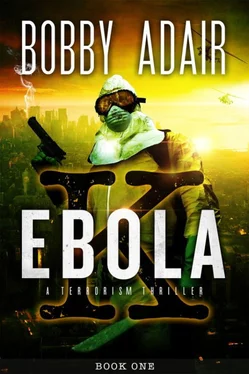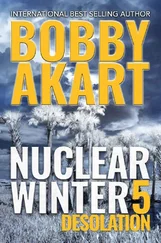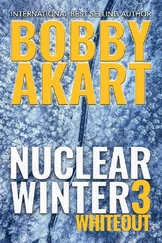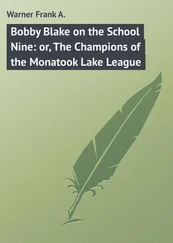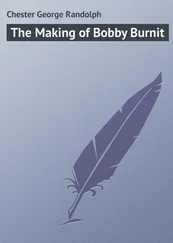She pointed at the trees down in the road. “Villagers do this when they want to isolate themselves from sickness, to keep it out.”
A single shot cracked through the air, and the soft young man crumpled.
Before Mitch could react, more shots followed. The air was full of whizzing bullets and the sound of automatic weapons fire. He dove behind the truck, dragging the woman down with him into the dirt. Mitch was on his knee behind a big rubber wheel with his compact Glock instinctively in his outstretched hand, looking for targets that would be way too far away to hit.
The soldiers ran back from the downed trees and around behind the truck. A few jumped up inside and retrieved their weapons, passing them quickly down to the others.
The gunfire still came. Mitch couldn’t find a target.
The UPDF soldiers—armed and as organized as they were going to be—took a defensive position behind the truck, while leaning over and spraying off shots down the road.
The female doctor cried out and Mitch realized she wasn’t behind the cover of the truck. She had gone over to help the downed man. Mitch lowered his pistol and holstered it. He leapt across the open ground between the truck and the man, grabbed a handful of the wounded man’s shirt, and dragged him behind the truck. The woman voiced her gratitude, but by then Mitch was looking around, feeling vulnerable to an ambush from either side.
The doctor began working fervently on her downed coworker as he struggled to breathe, bleeding profusely from a bullet hole in his chest.
Mitch caught the attention of a few of the soldiers and pointed to the trees and bushes on both sides of the road behind them. They caught his meaning right away. Mitch knelt down beside the doctor. “Can he be moved?”
“He needs a hospital,” she shouted above the gunfire.
Without much thought about his own safety, Mitch shoved his arms beneath her patient and hoisted him up with a grunt. “C’mon.” He charged as fast as he could move with the extra weight of the incapacitated man.
Mitch lifted him inside the back door of the doctors’ truck. His two escorts were immediately beside him with weapons at the ready. Turning to address the woman, he shouted, “Follow us. We’ll escort you back to Mbale. I know where the hospital is there.” He ran back to his truck and jumped into the driver’s seat.
His two men didn’t need to be told what to do. They each took a seat inside and trained their weapons out a window on either side. Moments later, they were racing back down the road to Mbale, with the medical people following as closely behind as speed and the dust allowed.
It had been a rough ride. After leaving Kapchorwa in the back of a farm truck with guys who were dirty, sweaty, and blackened with ash, they watched Kapchorwa’s flames grow in the night sky. Over the course of enough miles, the flames turned to a western glow in the darkness. There was only the rumble of the engine, the rattle of the old truck, and the grunts of the unnamed jihadists in the back with Salim. Each time the tires rolled through a particularly big hole in the road, they’d all bounce off the truck’s bed. Salim earned a new bruise with each landing.
The sky slowly opened up to black and a billion pinpricks of stars, most of which Salim had never seen. Denver cast off too much light pollution for much of anything to be visible in the night sky. The truck left the road after driving for maybe an hour, earning Salim and his compatriots plenty more bruises. The truck moved much too fast for safety—much less comfort—across rough ground. Throughout what seemed like an unending trip, none of them spoke. Mostly they stared with the empty looks of men who’d done something that shamed their souls. To fight America’s tyrannical, selfish policies by shooting at soldiers in the field was one thing, but burning sick people in their homes was another altogether.
Somewhere in the chaos of preparing for the burning, Jalal had disappeared. Whether burned in the village, beheaded for disobeying, or on another truck headed east, Salim could only guess. To take his mind off of the atrocities in the village, he spent a lot of time guessing what might have happened to Jalal and imagining about how they might meet up again. At the moment, Jalal was the only real friend he had. Well, perhaps Austin was a friend. He’d risked his life to save Austin and the girl with the weird French name he couldn’t remember.
Eventually the truck arrived at another dust-covered road. The ride became smoother, and the truck moved faster. The tallest tip of Mt. Elgon started to glow pink in the early sun. They had to be east of the mountain then, back in Kenya, and morning was coming.
Salim watched the mountain change as washes of morning color crept down the slopes. He thought of lava pouring out of the extinct volcano. The country on both sides of the road emerged from blackness, and Salim saw farm after farm after farm growing all manner of crops he couldn’t identify. In many ways, it reminded him of eastern Colorado with its rolling hills and plains covered with farms, pastures, and majestic mountains rising in the west.
It wasn’t until he was shaken awake that he realized exhaustion had gotten the better of him, and he’d dozed off.
“Wake up, brother. You can sleep on the plane.”
“The plane?” Salim asked, realizing the truck’s engine was off. The truck was empty, and he could see his companions walking toward a dilapidated building.
The Arab man pointed in the direction of the other men. “Follow them. You can wash off when you get inside. You’ll get new clothes.”
“The plane?” Salim asked, realizing only then that his bag, his passport, and his billfold were gone.
The man guessed the question. “Your things are inside.”
Salim slowly stood, feeling the physical abuse he’d put himself through over the past days.
“Hurry. Your plane leaves in thirty minutes.”
“Okay,” Salim jumped down off the bed of the truck, wobbled on his knees, and followed the others toward the shabby building.
Looking around in the dawn, it occurred to him that he hadn’t slept that long. Mt. Elgon still stood tall off toward the west. The surrounding land was mostly flat farmland with the exception of the rural airport and a few cobbled-together municipal buildings. A runway stretched off in two directions. A commuter plane sat on the tarmac, looking large enough to hold everyone in the truck and maybe a few more.
Besides the building the men were being herded toward, only one other small building, with an array of oddly-shaped antennae on the roof, stood on the immediate property. A curved wall of square window panes faced the runway. It had to be the terminal.
Perhaps this was the first real step on the way home to Denver.
Once inside the building, Salim guessed it had to be a hanger, built to house two or three small private planes, which were absent. At one end, the other men from the truck were either naked and washing themselves with soap and a garden hose, or stripping and waiting their turn.
Salim took his place in line, waiting as men hurried through their cleaning in front of him. Toward the far end of the hangar, a few tables with pants and shirts in various colors in Western styles lay on the table. On the floor leaning against a wall he spied his travel bag.
It was the first thing he had to feel good about in days.
Exactly thirty minutes after Salim rolled himself out of the bed of the truck, the commuter plane taxied down the runway and climbed into the thin Kenyan air. Some in the passenger cabin seemed to know each other and hushed conversations ensued. Salim contented himself to watch the houses and trees below shrink and merge into colored patterns with the other features on the ground.
Читать дальше
